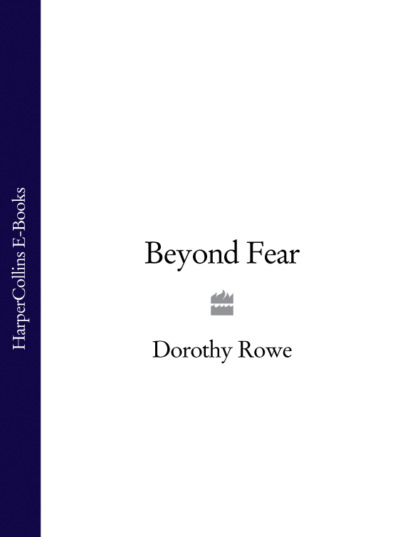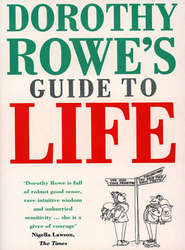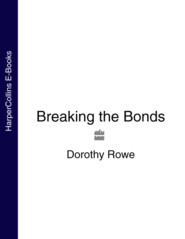По всем вопросам обращайтесь на: info@litportal.ru
(©) 2003-2024.
✖
Beyond Fear
Автор
Год написания книги
2018
Настройки чтения
Размер шрифта
Высота строк
Поля
Joy said, ‘What about Ray? He told me there were times with him too.’
Jack shook his head. ‘I can’t remember.’
Joy said to me, ‘This is what’s so terrible, he can’t remember. If he doesn’t remember what he did, what other things has he forgotten? Will he do it again? Can we trust him? You can see why Mark and Alice worry he might with our grandchildren.’
Jack found it hard to speak. ‘I wouldn’t, I couldn’t. I know Mark and Alice don’t trust me. But I wouldn’t, not with my grandchildren.’
Joy pressed him, reminding him of what he had done to Mark.
Jack said, ‘It started when Mark asked me about sex. I never thought much about it. Just two males together. At the orphanage, everyone did it.’
Jack went on to tell me about his life in the orphanage. After his father died his mother felt that she could not cope with him, so, at just eight years old, he was sent to a home for boys. There, he said, every new boy suffered ‘virtual rape from the older boys and from the masters. Everybody was involved in it. You learned not to complain because there was no one you could complain to. When you got older you did it to the younger boys. It went on in all the boys’ homes. When I got older I was sent to other homes we were shifted around a lot and I met up with boys from other homes and they did it.’
Jack said that he had never thought about his time in the orphanage at all. ‘I can’t remember much about that time. I don’t remember anything before I was eight. I know my mother used to have lodgers. One of them used to take me out to the woods. I can remember he used to buy me ice cream. Perhaps something happened then. I don’t remember.’ He spoke of the terrible guilt he felt now. Before, ‘I didn’t think about it. I thought the children would have forgotten it.’
Joy said, ‘When Alice was a child I told her not to let anyone do anything to her that she didn’t want and to tell me, even if it was someone close, like an uncle. Alice reminded me of this. She said, “I couldn’t tell you, Mummy, because there was someone, and you were always telling us what a good father we had.’”
Joy told me how, over the past ten years, Jack had suffered several sudden, violent illnesses, sometimes necessitating him being admitted to hospital. The doctors had explained these in terms of a virus, but now she wondered whether the illnesses were connected with all this. Now these things were being discussed, the illnesses had stopped.
Some weeks later, when we were arranging the next appointment, she said that in the three weeks between this meeting and the last she had thought she might go mad. All the structures she had built to form the world she lived in had now been revealed as fictions which bore little relation to reality, and she was no longer sure of what reality was. In those weeks she had felt that she had to hold all her thoughts very carefully in her mind, otherwise everything would fall apart. Jack threatened every part of her being. She was trying to hold it all together by continuing to be the good, patient, understanding, calm, unaggressive person she had always been, and by maintaining her faith that there was something beyond this life which would offer reparation for her suffering. However, Jack threatened even this. He would shrug his shoulders and say flatly, ‘This is all there is and when you’re gone, you’re gone.’
When we met three weeks later, Jack agreed that he needed people. ‘I don’t like being on my own,’ he said. He didn’t want to talk about what had happened. ‘What’s happened has happened,’ he said, ‘and I can’t change it. I’m sorry it happened, but I can’t do anything about it. If Joy could accept that we could get on with thinking about the future. That’s what’s important, not the past.’
Joy could not do that. She needed to think about what had happened, to reinterpret much of what she remembered of the past years, and to understand, no matter how painful that process of understanding was. ‘Jack just accepts things without thinking about them,’ she said. ‘He just takes what someone says or what he reads in the paper without working something out for himself.’
The way Joy would sit quietly, thinking, worried Jack very much. He felt that she had withdrawn from him and that he was in danger. He could not put this feeling into words. Instead he thought about leaving himself. He said, ‘Would it be best if I left? She’d be better on her own, without me.’
I said, ‘We can’t work out what’s best to do until we understand what happened and why it happened.’
So Jack reluctantly agreed to talk some more about his past. He described how he had been conscripted into the air force and posted to the Far East where, in the absence of women, many of the men found sexual relief with one another. ‘That’s all it was, just relief,’ he explained.
I asked whether he considered himself to be a homosexual - that is, having loving relationships with men as the most important relationships of his life.
‘Oh, no,’ he said, ‘I wouldn’t want to live with a man. I like women.’
His last sexual experience with another man had been when he came out of the air force and was living in Wales. He had later moved to the Midlands, where he had met Joy. None of these sexual encounters had been with children.
Joy said, ‘Jack’s always seen sex as something very surface. When the children were little and he was working very hard, I wouldn’t see him until late and we’d no sooner get in the bedroom than he’d want to. I couldn’t get him to understand I wasn’t like that. I needed time to be with him.’ It was no good if Joy offered simply to oblige him. He wanted every sexual encounter to be passionate and grand, in which he possessed Joy totally. Instant, total gratification.
We went on to talk about their children. Jack was very proud of them. All of them, except Mark, had excelled academically, and Mark was now being successful in his own business. ‘I couldn’t ever believe I could have such bright kids,’ said Jack. ‘Right from the beginning they seemed older than me.’
What did he mean, they’d always seemed older than him?
Gradually we put together an answer to this question. When the children were tiny he did not see them very much as he was working so hard, but once they started at school he became aware of how bright they were and how much they knew. He could not discipline them, but only, in Joy’s words, ‘quarrel with them’. He felt inferior to them, and frightened of them. There was only one area of experience where he felt his knowledge was superior to theirs - sex - and so he thought he could teach them about this. All the time he could not see anything wrong in doing this. Of course, sometimes we teach children something because we feel that it is important that they know it, and other times we teach them something so we can demonstrate our superiority over them. Sometimes we need to demonstrate our superiority because we envy them.
Joy had brought along letters from her daughters Jenny and Alice. Jenny was angry with Alice for speaking about the subject to Joy, causing Joy hurt. Jenny said she had spent years trying to forget ‘the experience’ and did not want to discuss the matter now. Jenny’s letter implied that something very unpleasant had happened. Jack said he could remember very little, but he insisted that whatever had happened was nothing more than when he was ‘fooling around with her’, playing the childish games Jenny had always enjoyed. He admitted he had touched her breasts. ‘I didn’t expose myself or ask her to touch me,’ he said. ‘It was her body I wanted to see.’ He was distraught with remorse. ‘I didn’t realize how much I had hurt her. I wouldn’t want to hurt her ever. I wish I could tell her how sorry I am and ask her to forgive me.’
Jenny had always been extremely good as a child. Alice had been argumentative, and she and Jack had often clashed, but Jenny never argued with him. Jack was puzzled as to how Jenny could be so upset now about what had happened; as a teenager she had always been very friendly to him. She had won a scholarship to a boarding school of great repute, and he had often driven her to and from the school, several hundreds of miles away. Moreover, at home she would often go from bathroom to bedroom quite scantily clad. Why would she do this? I guessed that Jenny throughout her teens was trying to prove to herself that these painful events of her childhood had never happened or, if they had, that they had no untoward significance.
As Jenny was coming for Christmas I suggested that Jack write her a letter, saying what he had just told me he wanted to say to her. We spent some time discussing this proposed letter. Jack was worried that if he did what I suggested giving Jenny the letter soon after she arrived home this might spoil Christmas, and the family’s ritual celebrations of Christmas were very important to Jenny (and to Jack). ‘She likes everything to be exactly the same every year,’ he said. ‘I’ll give it to her just before she leaves.’
‘That won’t give her time to discuss it with us if she wants to,’ said Joy. She went on, ‘We have to show the children that we are able to bear all this, because if we can’t bear it, then they’ll find it hard to bear what they have to bear.’
When they came back to see me on New Year’s Eve they agreed that they had had a good Christmas. Jenny, Louise and Ray had come home, and there had been a family celebration. Jack had written the letter to Jenny, saying how sorry he was and asking for her forgiveness. He had put the letter on her bedside table on Boxing Day morning. Later Joy had looked in and seen that the letter had disappeared. Jenny did not mention it for the rest of her stay. ‘Her manner didn’t change at all,’ said Jack. ‘She was just like she’s always been, all the time she was with us. Perhaps she’ll write to me when she gets back home.’
Mark and Alice, spending Christmas with their own families, had phoned over the holiday. ‘They didn’t want to talk to me,’ said Jack. ‘This is my punishment.’
Joy told me how she and Ray had talked together about the sexual approaches Jack had made to his son, which Jack did not remember. They had not included Jack in this conversation because they both wanted to spare his feelings. Now, in her gentle, precise way, she told me what Ray had told her. Jack sat with his head down.
Ray described three events. The first was a simple enquiry from Jack as to whether Ray got erections. Ray had not sensed there was anything wrong with this until Jack, leaving Ray’s bedroom, had said, ‘Don’t tell your mother.’ The next time Ray and Jack were playing, just fooling around, Jack put his hand down Ray’s trousers and touched his penis. Ray pulled himself away. The third occasion was no more than a look which Ray, undressed, found hard to distinguish from the close looks which parents give to children when inspecting for unwashed faces and adolescent pimples.
Jack still could not remember these events. ‘Jack doesn’t bother to sort things out,’ said Joy. ‘Something happens and he just covers it up with something else. It’s like our attic. When we moved to that house he just piled things up there, just a higgledy-piggledy mess. That attic always reminded me of Jack’s mind. I hated to go up there. But now I’ve got everything in it sorted out. We put up some shelves and changed the glass in the window to let in more light.’ She smiled. ‘Now we’re getting his mind sorted out getting things clear and in order.’
The reason that the attic, like all the cupboards and shelves in their house, was crammed full of things was because Jack couldn’t bear to throw things away.
‘We weren’t allowed any possessions at the orphanage. If you had something you had to carry it with you to keep it or it disappeared. When I went into the orphanage it was just after Christmas and I had all my Christmas presents. They soon disappeared. I had a billiard table and cue. The cue was the first to go. One of the masters took it and used it as a cane. He often belted me with it. I soon learned how you had to get things. You were always on the lookout for something you could exchange for something else. But it always had to be something you could carry with you. It wasn’t until you were a work boy that you had a locker, just a small one, about eighteen inches square, and you were allowed to buy a lock to put on it. But even then someone would break the lock and take your things.’
Jack talked about the beatings and indiscriminate cruelty in the orphanage. The matron, he said, wore a large ring, and as she walked past a boy she would slap him across the head, often cutting his face with the ring. Even today Jack cannot bear to have his head touched.
‘We would get belted for anything and nothing,’ he said. ‘Every fortnight we had boot inspection. We had to stand holding our boots upside down. The chap who mended our boots would allow us to lose just one stud from the sole. For every other stud missing you’d get a belting. We’d do anything to get studs for our boots. If you found one you treasured it like gold. Sometimes you’d manage to get hold of a new one and then you’d have to scratch it for ages to make it worn like the other ones. If he thought you’d put a new one in, well, you’d had it.’
The boys were beaten and whipped for all kinds of offences and often for nothing at all. ‘I wet the bed every night from the time I went into the orphanage until the time I left. There was a group of us that did this, and we were always punished, every time. We’d be beaten, or wrapped up tight in the wet sheets and made to stand out in the cold. All the other boys knew what you’d done. We always had to wash our own sheets. The staff never did anything to help us.’ There was no one to whom the boys could turn for help. ‘No one would have believed us,’ he said, ‘and my mother, even if she had believed me, which she wouldn’t, wouldn’t have done anything anyway.’
As Jack described at length the cruelties that had been perpetrated on these helpless boys, he smiled and occasionally laughed. I asked him why he did so and he said, ‘Well, it’s a long time ago, and there’s nothing I can do about it.’
I asked him whether he had beaten his own children. ‘Nothing like the way I was beaten,’ he said. ‘Only when they needed it.’ ‘I’d stop him,’ said Joy. ‘I can’t bear violence. It’s so ugly.’ ‘Alice was the main one,’ said Jack. ‘She used to wind me up. I wouldn’t belt her just slap her around the face.’
Several times in this conversation Jack remarked with some awe how he was remembering things he had never thought of before, ‘not just general things, but specific things. I can remember just what happened and what I felt.’ He went on, ‘You know, when I remember being with someone then, I remember it as being pleasant. It was warm. You were accepted, even though it was only for a night. The masters, well, they lived two lives. If one of them said to you “Come to my room at seven o’clock tonight” you knew what it was for. You weren’t going to get belted. They were really nice to you then. They gave you sweets and cakes, things you hardly ever got. Then next morning if you stepped out of line they’d belt you. If a master chose you, well, it was like being taken out of the pond. We were just like fish in a pond. If one master chose you, then the other masters didn’t. They each had their own group of boys. Your master might keep you for a long time, or he might get sick of you and then you’d get thrown back in the pond.’
Jack stressed that the good part was that ‘you were always paired off with someone. There wasn’t much group sex. Sometimes the boys in the dormitory would have, for want of a better word, a wanking party to see who could come first, and there was one master, a slimy creep, who used to get several boys in his room and make them do it while he watched, but most times, even with the boys in the dorm, even if it was only once, it was just the two of you. It made you feel special.’
Jack was very special for over a year. One master, known as the Major, singled him out. In his room Jack learned more than sex. The Major played records and introduced Jack to classical music. Music became Jack’s great love. The Major would also take Jack on excursions out of the school. ‘He would take me to Salvation Army meetings. Sometimes they would have concerts, really good music. And they always made a big fuss of me. They’d stuff me full of cakes and buns and give me a big bag of food to take back for my friends. I was really happy there. It was great, getting out and meeting people.’
Then, suddenly, the Major left. ‘The staff were moved around the different homes a lot,’ he said, ‘but we usually had a few weeks’ warning. With the Major, he just left in twenty-four hours. I was thrown back in the pond and I was just another boy there for, well, over a year.’
I asked Jack whether the other boys were envious when one boy was singled out by a master. ‘No, they just took it for granted. Everyone did it. If you woke in the morning and saw a boy’s bed empty you knew he was with so-and-so. And the boys who went with masters, they brought back sweets and things, for the other boys. If they didn’t hand them out they had them taken off them.’ Jack had felt envious of anyone who had something that he did not have.
Despite their continual financial difficulties, Jack and Joy had always found the money to give their children the things they needed to pursue their interests. If one was interested in music, then musical instruments were bought. If another was interested in tennis, then tennis rackets and tennis lessons were bought. Jack was proud of his children’s achievements and of his hard-won ability to give them what they needed, but underneath that there must have lurked a small boy’s envy of the other kids’ possessions.
The conversation turned to television, and Joy remarked that Jack could not stand any programme that revealed emotions. When I enquired, ‘What emotions?’ it became clear that Jack could not tolerate watching the expression of realistically tender feelings. He enjoyed the violence of westerns and war films (‘Well, it’s only on the screen, isn’t it?’) but the expression of real, tender, personal feelings, with all the concomitant yearning and pain, was something he could not bear to witness.
Joy had suggested that Jack might like to come to see me on his own, and I was surprised when he agreed to do this. He spoke again of his sexual experiences at the orphanage. He described how he had been there only a few hours when a boy came to him and said he was wanted. He was taken down to the basement where the boiler was, and there he found a group of the older boys.
‘They grabbed me, spread me on the table, and each of them raped me. If I struggled they hit me. They were big boys, fully developed, big enough for it [anal rape] to be very painful.’
A day or so later he was taken again, this time by just two boys. ‘It wasn’t as bad as the first time. I got used to it.’ With most of the masters ‘it was just down with the trousers and, bang, in. All you got out of it was a sore bottom.’
He told me how one master would beat boys on the bottom with a cane until their flesh was red and sore. Then he would smooth cream over the boy’s buttocks very gently. Then, ‘bang, in. It was pain, pleasure, pain. Funny thing, I really like smoothing cream on. I like smoothing cream over Joy’s back.’ He added, ‘I was a skinny little kid, and I always was the passive partner, but after, when I got older, I did it to the younger kids. I wonder now what happened to them.’









